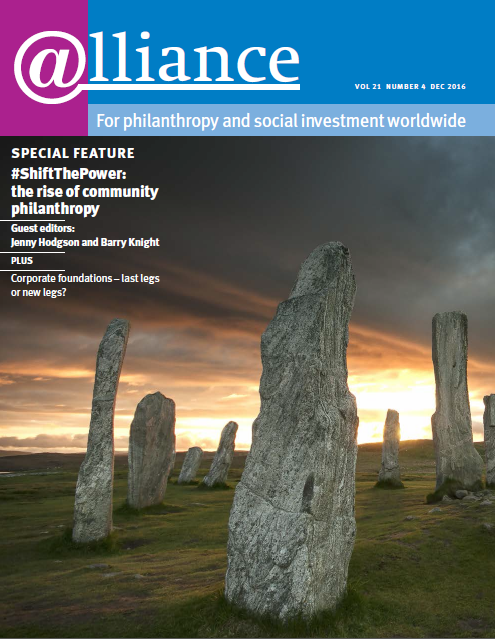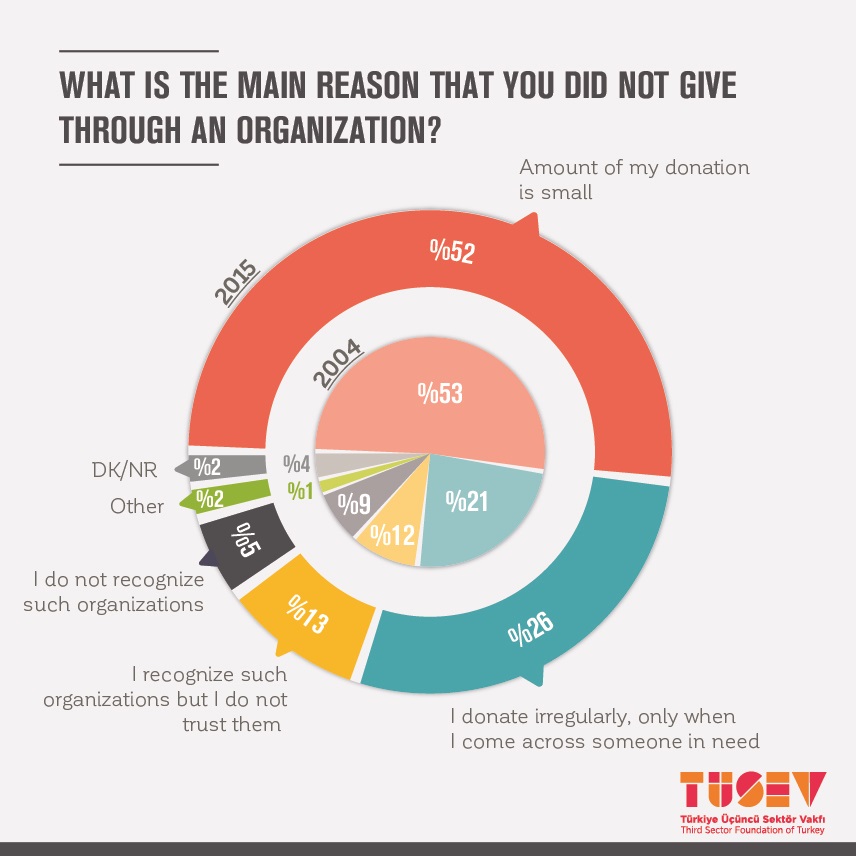A new report suggests that traditional forms of giving still dominate in Turkey, with most people giving directly to individuals and for the relief of immediate needs. The report, Individual Giving and Philanthropy in Turkey, produced by the Third Sector Foundation of Turkey (TUSEV), not only highlights the current state of individual giving, it also provides insights into the perception of philanthropy in Turkish society, its motivations and its trends.
Turkish people, says the report, mostly view philanthropy as providing help directly to those in need and usually in the form of food, clothing and cash donations. Giving is highly motivated by fulfilling religious obligations (32.5 per cent) and takes place in closed circles – preferably among family members, local acquaintances and fellow townspeople. The average per capita direct giving and giving through an organization made over the past year was TL228 (roughly US$77.5 or €69), a total of TL13.7 billion in donations (US$4.5 billion or €4.15 billion), which equals 0.8 per cent of Turkey’s GDP in 2014.
The figures also illustrate a preference for giving directly rather than through organizations. An average of TL209 per capita was given directly, whereas donations to organizations accounted on average for only TL16.7. Moreover, while direct donations show a persistent pattern in the last decade, donations made to CSOs have decreased from 18.4 per cent in 2004 to 12.9 per cent in 2015. This drop can be explained by economic stagnation, low social capital and political turmoil in the country. Fifty-two per cent of respondents do not choose to donate to CSOs because the ‘amount of their donations is small’ while 26 per cent say that their donations are ‘irregular and made only when they come across someone in need’. Thirteen per cent say they do not trust CSOs.
Donors mostly give to causes such as the poor and those in need (20.5 per cent), orphans (13.9 per cent) and families of martyrs and veterans (8.4 per cent). The least popular areas are helping refugees (1.1 per cent), art, culture and conservation (1 per cent), and the care and protection of animals (0.9 per cent). The findings of the report also show that tools for giving such as mobile and online giving and crowdfunding are still new in Turkey but hold great potential for the future.
While direct donations show a persistent pattern in the last decade, donations made to CSOs have decreased from 18.4 per cent in 2004 to 12.9 per cent in 2015
The report is based on a household survey of some 2,500 people representative of Turkey’s voting age population, carried out between August and November 2015 and drawn from 68 of the country’s 81 provinces. It was undertaken as part of TUSEV’s social investment programme, which aims to encourage a culture of giving and to strengthen the infrastructure, enabling the development of strategic giving in Turkey. It was supported by six of the country’s leading foundations: the Anadolu, Aydın Doğan, ENKA, Hüsnü M Özyeğin, Sabancı and Vehbi Koç Foundations.
For more information







Comments (0)